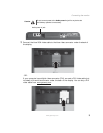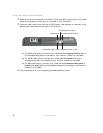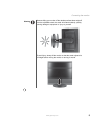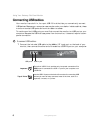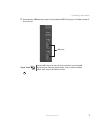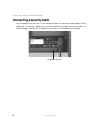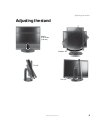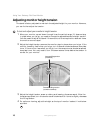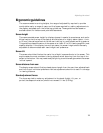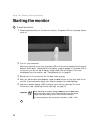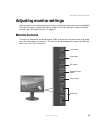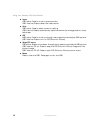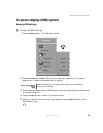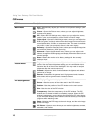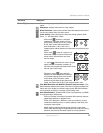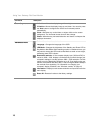11
www.gateway.com
Adjusting the stand
Ergonomic guidelines
The recommended mounting heights, the range of adjustability required to provide
comfortable use by a range of users, and the forces required for making adjustments to
the display are based upon the following guildelines. These guidelines are based on
available scientific literature and published standards.
Screen height
The recommended screen height for displays (except in special circumstances, such as for
bifocal use) is that the top of the display should be set at or slightly below (about 1 inch,
or 25 mm) the user’s eye level while the user is sitting in a comfortable working posture.
This guideline places the center of the screen at an ideal 15° to 20° viewing angle for most
desktop displays. If the display has multiple users, the screen height should be easily
adjustable to accommodate each user’s height and preference.
Screen tilt
The screen should be tilted so the user’s line of sight is perpendicular to the screen. This
angle creates the most consistent viewing distance when scanning from the top of the
screen to the bottom. You may need to adjust lighting to avoid screen glare when the screen
is tilted upward.
Screen distance from user
The display screen should first be placed at arms length from the user, then adjusted back
and forth to suit individual preference. Vertical adjustments should not result in a change
in viewing distance.
Stand adjustment forces
The force required to make any adjustment to the stand (height, tilt, pan, or
portrait/landscape orientation) should not exceed 5.1 lbs. (2.32 kg).



